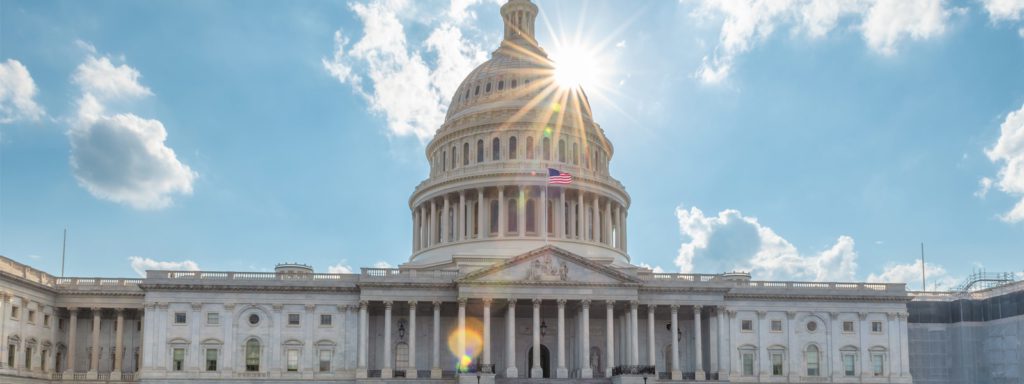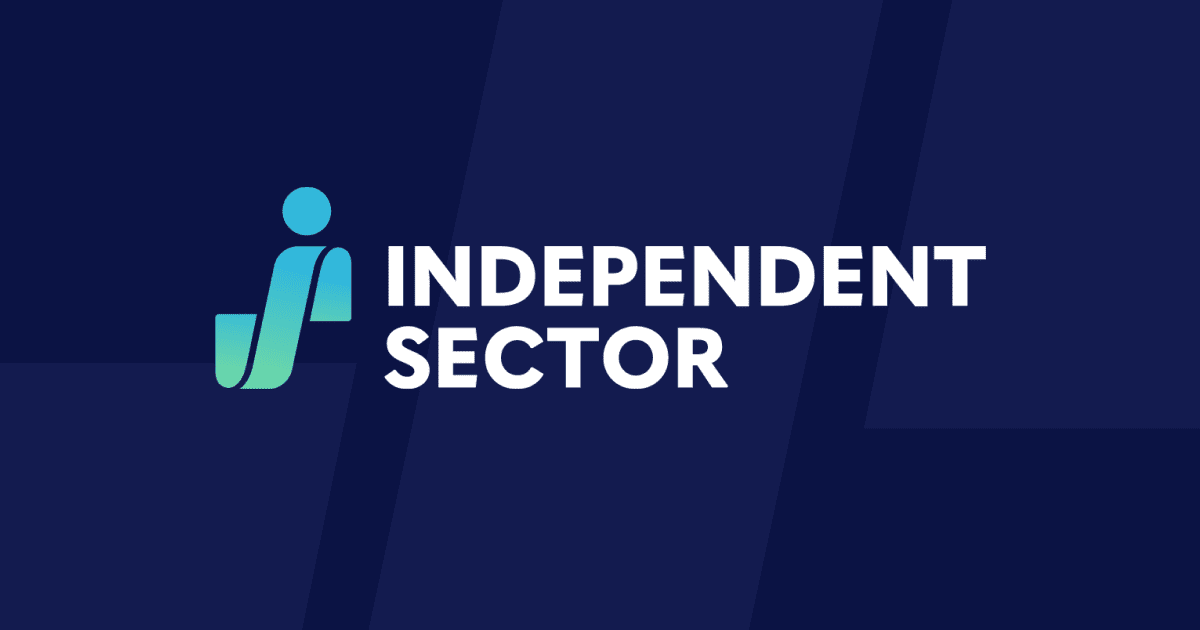(WASHINGTON, Jan. 22, 2021)—Today, 75 national nonprofits sent a letter to President Biden and congressional leadership urging them to recognize the unique role of charitable nonprofits in providing pandemic relief and economic recovery by enacting solutions tailored to the needs and realities of these organizations that are devoted to serving the public good.
The letter highlights the role nonprofits have played to support communities during the pandemic and the challenges they have faced as a result of the economic downturn – growing demand for services with declining revenue, the loss of nearly one million jobs, crippling unemployment insurance bills, and more.
The undersigned nonprofits urge Congress and the Administration to:
1) Provide Nonprofit-Specific Grants, Forgivable Loans, and Refundable Tax Credits for All Nonprofits: While some nonprofits were able to participate in some of the relief programs established in 2020, many of those programs were designed primarily for for-profit businesses and excluded too many charitable organizations that are providing essential services. Nonprofits with more than 500 employees have not been eligible for PPP or other grants or forgivable loans. Restrictions based on previous employee size and gross-receipts declines in the Paycheck Protection Program and the Employee Retention Tax Credit do not make sense in the nonprofit context. Nonprofits frequently employ large numbers of part-time employees and, unlike for-profit businesses, demand for nonprofit services and the resulting costs of operating during a pandemic have far exceeded normal levels, without a similar increase in revenues to keep pace. Indeed, nonprofits are frequently asked to provide additional services without corresponding increases in resources. Further, it is a fundamental feature of nonprofit economics that nonprofit boards are averse to taking on loans to cover operating expenses, thus making suggestions of low-cost loans unpalatable to the vast majority of frontline organizations.
Request: Establish grant and funding programs, such as a nonprofit Paycheck Protection Program that would provide forgivable loans to nonprofits of all sizes and without regard to gross receipts, as well as a grants program such as the proposed WORK NOW Act to help nonprofits retain employees, scale service delivery to meet growing needs, and create new jobs. We further ask that Congress appropriate funds for emergency grant programs that enable nonprofits to advance their missions of serving communities.
2) Strengthen Charitable Giving Incentives: The CARES Act established a limited, yet important, above-the-line deduction that encourages all taxpayers to donate to the work of charitable organizations. In extending this provision as part of the year-end COVID relief law, Congress acknowledged that tax policy will continue to be an important incentive to help every American support pandemic relief and recovery. We know that greater incentives are needed in 2021 as nonprofits respond to the growing health and economic crises and will be critical in the future as nonprofits play an essential role in recovery efforts when the pandemic ends. Further, tax reforms must recognize that limits to existing giving incentives would have the unintended consequence of undermining the charitable sector upon which governments rely and would result in increased costs for governments if they had to replace nonprofit services.
Request: Significantly increase the cap on the above-the-line deduction, extend it at least through 2022, and preserve the itemized charitable contribution deduction, all to ensure that nonprofits can serve their communities.
3) Provide Full Unemployment Benefit Reimbursement to nonprofits that self-insure these benefits. Federal and state laws give nonprofits the option of operating as self-insured (“reimbursing”) employers that make payments to their state unemployment insurance systems for benefits attributable to them in lieu of making advance contributions. Shut-down orders by government officials and program cancellations have forced nonprofits to furlough or layoff staff, triggering immediate, catastrophic bills for unemployment costs that for-profit businesses have not had to pay during the worst stages of the pandemic and economic downturn. These challenges have exacerbated cash flow difficulties for nonprofits that have forced nonprofits to not only divert valuable funds from mission services, but also, ironically, to lay off more employees to have resources to pay their state’s unemployment bills.
Request: Increase the federal unemployment insurance reimbursement for self-insured or reimbursing nonprofits to 100% of costs retroactively to 2020 and extend the relief through the first three quarters of 2021.
4) Provide Aid to States and Local Governments: Charitable organizations endorse providing substantial federal aid to state and local governments to help cover lost revenues during the pandemic. Such aid is required to avoid layoffs and cuts to essential programs and services. In the past, when governments have faced fiscal challenges, too many have sought to impose new costs and burdens on their nonprofit partners, and, as one state has already done, unilaterally reduced payments to nonprofits for services already performed for the government pursuant to written agreements.
Request: Provide emergency assistance to state and local governments for the well-being of our communities.
Read the full text of the letter here.
Update: Here’s an online form if your nonprofit organization would like to sign the letter in support of more relief.
###
The following organizations signed on to the letter:
| ACCSES |
| Afterschool Alliance |
| Alliance for Strong Families and Communities |
| Alliance of Nurses for Healthy Environments |
| American Alliance of Museums |
| American Cancer Society Cancer Action Network |
| American Lung Association |
| American Red Cross |
| Americans for the Arts |
| Association of Art Museum Directors |
| Association of Junior Leagues International Inc. |
| Association of Public Health Laboratories |
| Best Buddies International |
| Blinded Veterans Association |
| Boys & Girls Clubs of America |
| California Association of Nonprofits |
| Catholic Charities USA |
| CenterLink: The Community of LGBT Centers |
| Citizen Schools |
| City Year, Inc. |
| Communities In Schools |
| Community Anti-Drug Coalitions of America (CADCA) |
| Council for Advancement and Support of Education |
| Council on Foundations |
| Covenant House International |
| DANA, Delaware Alliance for Nonprofit Advancement |
| Dance/NYC |
| Dance/USA |
| David Brower Center |
| Ducks Unlimited |
| Epilepsy Foundation |
| ETS |
| Faith & Giving Coalition |
| Girl Scouts of the USA |
| Girls Inc. |
| Goodwill Industries International, Inc. |
| Habitat for Humanity International |
| Healing Household 6 |
| Healthy Schools Campaign |
| Independent Sector |
| InterExchange, Inc. |
| Jewish Federations of North America |
| Kentucky Nonprofit Network, Inc. |
| Leadership 18 |
| League of American Orchestras |
| Lutheran Services in America |
| March of Dimes |
| Meals on Wheels America |
| Mental Health America |
| National Audubon Society |
| National Council of Nonprofits |
| National Fitness Foundation |
| National Health Council |
| National Marine Sanctuary Foundation |
| National Network for Youth, Inc. |
| New York Council of Nonprofits |
| Nonprofit Leadership Alliance |
| Nonprofit New York |
| OPERA America |
| Rails-to-Trails Conservancy |
| Special Olympics International |
| Student Conservation Association |
| The Nonprofit Alliance |
| Third Sector New England (TSNE) |
| Union of Orthodox Jewish Congregations of America |
| United Philanthropy Forum |
| United Way Worldwide |
| VisionServe Alliance |
| Volunteers of America |
| Welcoming America |
| YMCA of Greater New York |
| YMCA of San Francisco |
| YMCA of the USA |
| YWCA USA |

